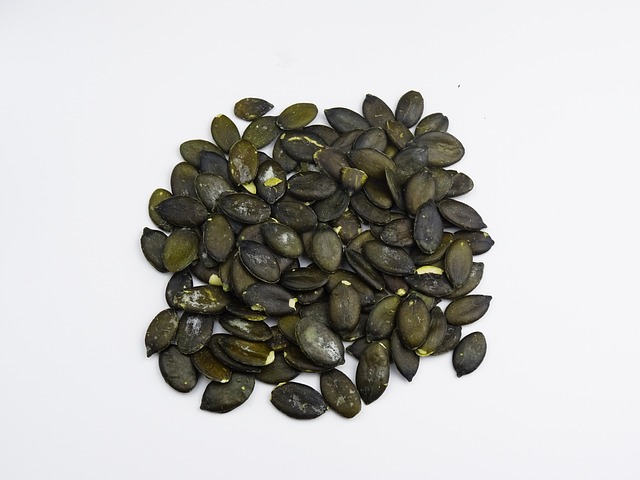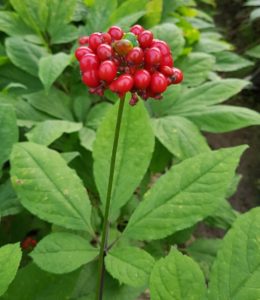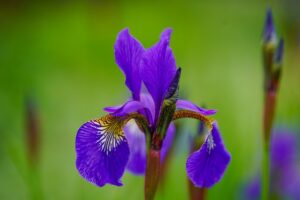Natural Treatments for Benign Prostatic Hyperplasia

The prostate gland is an organ found in males that wraps around the urethra. The urethra is the tube that drains the bladder during urination. As men age, the prostate gland can enlarge. If the gland swells too much, it can block the flow of the urethra, disrupting urination. When the prostate gland is enlarged, the condition is referred to as benign prostatic hyperplasia or BPH for short.
Conventionally, BPH is treated with drugs. If drugs aren’t effective and the blockage becomes more severe, surgery is recommended to restore urine flow. Unfortunately, surgical procedures for the prostate often carry risks for sexual dysfunction. As such, it’s worth considering integrative approaches for helping to slow the progression or to reverse BPH.
Some of the integrative treatments worth considering include:
- Saw palmetto
- Stinging nettle
- Pumpkin seeds
- Melatonin
Saw Palmetto or Serenoa Reopens
As an herbal approach, saw palmetto is the classic herb considered for the treatment of BPH. While the herb is commonly recommended, the benefits from saw palmetto appear to be modest, although potentially on par with tamsulosin, a medication often recommended for BPH.
The most recent meta-analysis of clinical studies on saw palmetto when compared to placebo found only trends for benefits that did not reach statistical significance (Fanco 2023). However, in comparison trials where saw palmetto was tested head-to-head with tamsulosin, both treatments fared equally well at reducing urinary symptoms due to BPH (Cai 2020). Additionally, saw palmetto had less sexual side effects and was better tolerated.
Stinging Nettles or Urtica dioica
Stinging nettles are often considered a noxious weed. The plants are prolific, often growing a few feet in height with stems and leaves that have stinging hairs or spines that inject an irritant into the skin. If you’ve ever been walking through a field or forest and developed welts that sting, it’s likely you touched a nettle plant.
Clinical trials of stinging nettle have focused on both the root and leaves. One of the first studies included 558 patients with BPH (Safarinejad 2005). Over the course of six months, 81% of patients taking nettle root had improvements as compared to 16% on placebo. Symptom scores were reduced by 40% on average with stinging nettle.
More recent studies appear to mostly confirm the benefits. One study out of Iran with 100 patients had almost complete resolution of prostate symptoms with stinging nettle supplementation (Ghorbanibirjani 2013). A study using leaf and root combined with prazosin, a medication used for treating BPH, found that the highest dose of nettles nearly halved BPH symptoms (Hosseinabadi 2014). The medication alone provided minimal benefits.
A review article from 2020 on stinging nettle concluded that the herb had significant benefits for treating BPH with preparations made from leaves, roots or both (Mohaddese 2020).
Pumpkin Seeds

The seeds from pumpkins have been touted for a number of health benefits, including positive effects on prostate health. One study treated men with mild to moderate BPH symptoms with a pumpkin seed extract (Theil 2022). After two years of treatment, three-quarters of the men given pumpkin seed extract were satisfied with the results, having reduced BPH symptom scores.
A study comparing pumpkin seed oil to standard BPH medication found that the oil reduced symptoms without side effects (Zerafatjou 2021). However, medication reduced symptoms by half, whereas pumpkin seed oil reduced symptoms by just 30%.
A similar study using an oil-free alcohol extract of pumpkin seeds also found benefits for BPH. In the study, BPH symptoms were reduced 30% with the extract (Leibbrand 2019).
Melatonin
One of the main symptoms of BPH is nocturia. Nocturia is awakening more than once a night to urinate. Studies beginning in 2004 noted significant improvements in nocturia with melatonin supplementation (Drake 2004). Nightly episodes were decreased by one-third with just 2 milligrams of controlled-release melatonin.
A separate trial comparing melatonin and medication for nocturia found the treatments to be equal in efficacy (Sugaya 2007). Both treatments reduced nocturia episodes by approximately 25%. A study in Parkinson’s disease, including both men and women with nocturia, also found melatonin to be helpful. In the study, nocturia episodes were decreased by one-third (Batla 2021)
For individuals with BPH that have significant nocturia, melatonin may be helpful for reducing night-time urination episodes.
Conclusion
BPH is a common problem in men as they get older. The condition is generally considered to be progressive, and when severe, may require surgery. Several natural and integrative treatments may help to reduce symptoms and improve outcomes long term, including saw palmetto, stinging nettle, pumpkin seeds and melatonin.



